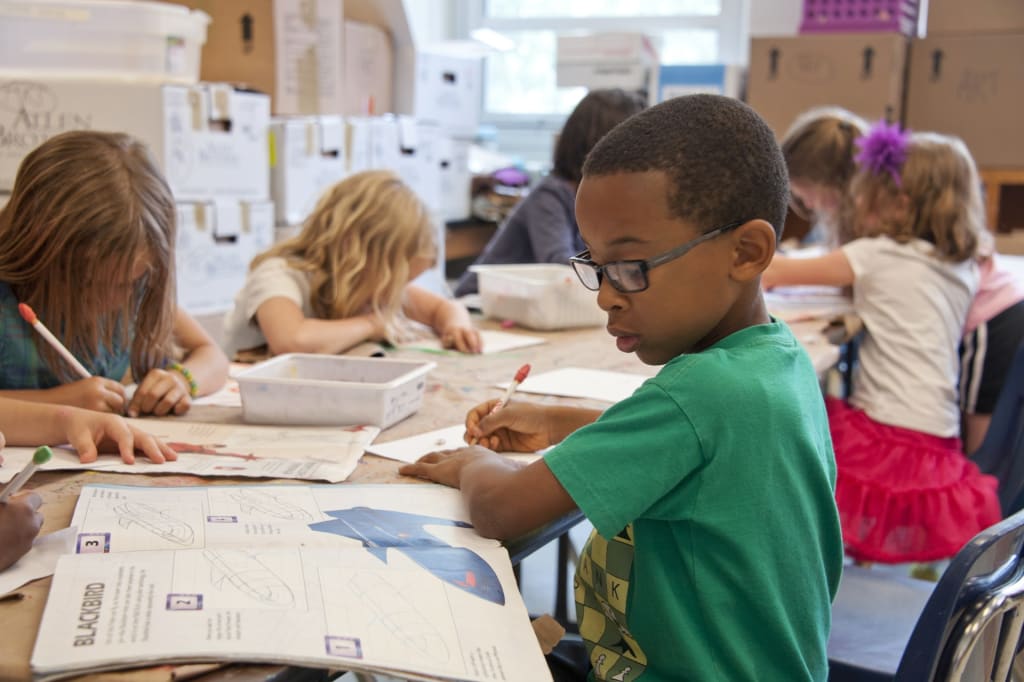Pros and Cons of Private Preschools
This article will provide you with a brief overview of what preschools are, what the admission criteria are, and how to locate one near you.

Preschools with assistive technology for preschoolers provide children with high-quality education before they begin formal schooling. Given the critical importance of early childhood education and its role in shaping a child's future, parents seek options that will assist their child in excelling in this new stage of life. Enrolling your child in a preschool is one of the best ways to help him or her prepare for formal schooling. This article will provide you with a brief overview of what preschools are, what the admission criteria are, and how to locate one near you.
What Is A Preschool?
A Preschool, in a nutshell, is an educational institution that is designed to prepare your child for formal schooling. It prepares a child's mind and body for formal schooling by developing social and emotional skills, increasing self-confidence, understanding a child's potential, and providing a solid foundation of learning. A preschool is an excellent choice for parents who want to give their child the best possible start in life by providing an environment in which they can grow, learn, and thrive. Preschools are classified as private, public, international, Montessori, or Waldorf. Before selecting a Preschool, it is critical to understand what each type provides.
Important things to know before choosing a Preschool
Do your research before beginning your search for a Preschool. This means that you must not only research different Preschools in your area, but you must also understand what constitutes a great Preschool. Location - Another important consideration when selecting a Preschool is its location. You must ensure that the school is not only easily accessible, but also in a secure neighborhood. Facilities - It's also a good idea to see if the Preschools you're considering have all of the amenities that will help your child grow, learn, and thrive. The classrooms, playground, cafeteria, and library are just a few of the most important facilities to inspect. Curriculum - A Preschool's curriculum is extremely important because it will help your child build a strong foundation for formal schooling. As a result, it is critical to ensure that the school's curriculum will enable your child to excel. - Teachers - Finally, make certain that the Preschools you choose have a strong faculty. The faculty should have the necessary qualifications and experience, as well as the ability to provide a safe and nurturing environment for the children.
Differences between private and public Preschools
The first distinction between private and public preschools is their affiliation. The government owns and operates public preschools, whereas private preschools are owned and operated by private organizations. Curriculum - Another significant difference between public and private preschools is the curriculum. While public preschools use a standard curriculum, private preschools use one that is tailored to their needs. Fees - Another significant difference between public and private preschools is the fees they charge. Private Preschools charge a fee, whereas public Preschools are free. Facilities - The facilities provided by public and private preschools differ. Public preschools provide standard facilities, whereas private preschools provide customized services. Location - Another distinction between public and private preschools is their location. While public preschools can be found throughout the city, private preschools are typically found in affluent neighborhoods.
Pros of enrolling your child in a Preschool
Early preparation - The most obvious benefit of sending your child to a preschool with preschool interactive activities is that it will assist your child in preparing for formal schooling. This means that your child will have an advantage over his or her peers who will start school in a few years. Strong foundation - Another advantage of enrolling your child in a preschool is that it will assist them in laying a solid foundation for formal schooling. This means that your child will have all of the skills, knowledge, and confidence needed to succeed in school. Strong social and emotional skills - Another advantage of enrolling your child in preschool is that it will assist them in developing strong social and emotional skills. This means your child will be able to interact with others, remain calm under pressure, and be resilient when confronted with failure. Finally, enrolling your child in preschool will assist them in developing a stronger immune system. This means your child will be more resistant to various diseases and infections.
Cons of enrolling your child in a Preschool
Longer learning hours - Another disadvantage of sending your child to a Preschool is that they will have to stay in school for longer periods of time. This means that your child will have less time to rest and relax than they do at home. More pressure - Another disadvantage of enrolling your child in a preschool is that he or she may feel more pressure to succeed. This means that your child may feel more pressure to perform well in school and meet the academic standards of the school. Higher expectations - Another disadvantage of enrolling your child in preschool is that they may have higher expectations of them. This means that teachers and parents may have higher expectations of your child. Finally, enrolling your child in a preschool will assist them in developing language skills at a young age. While this may appear to be a positive development, it can be problematic if the child is not ready for it. This is due to the fact that toddlers and young children are not yet capable of comprehending language and its applications.
Conclusion
A preschool is an excellent choice for parents who want to give their child the best possible start in life by providing an environment in which they can grow and thrive. Preschools are classified into three types: private, public, and international. Before selecting a Preschool, it is critical to understand what each type provides. That being said, it is important to remember that, while preschools provide a wonderful environment for children to grow and thrive, the quality of education they provide is not as high as that provided by formal schools. This is because most Preschools do not have as stringent a selection process as formal schools.
About the Creator
Amit Kumar
Full-time thinker & part-time writer...






Comments
There are no comments for this story
Be the first to respond and start the conversation.